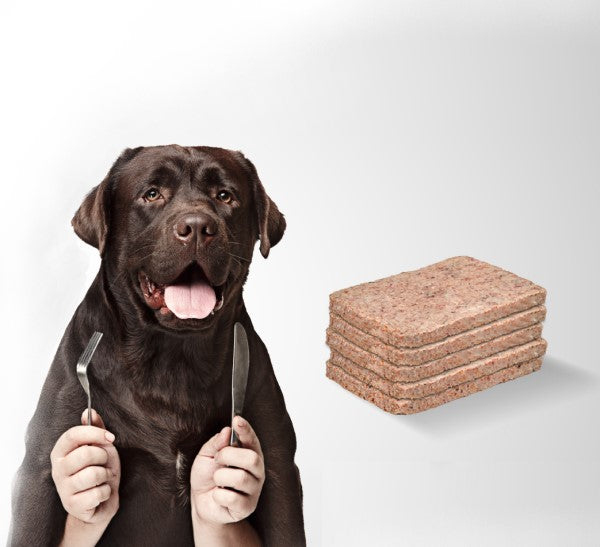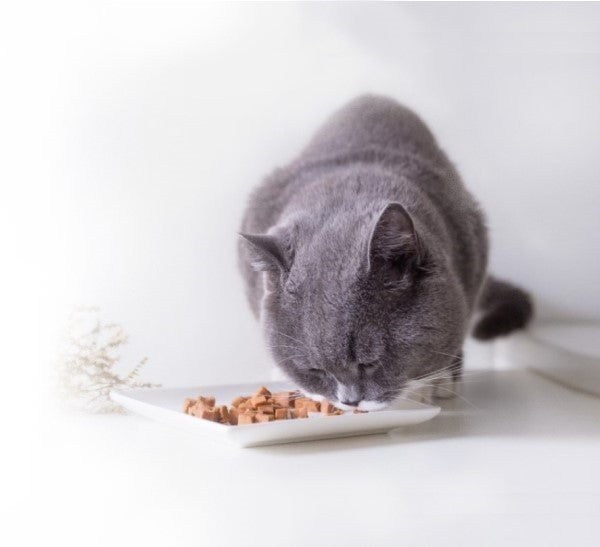Carbs in Dog's Food
With great regularity, all kinds of carbohydrate sources (especially wheat and rice) in dog food are written rather negatively. Are these statements justified or have the comments started to lead a life of their own through repetition? Or did they originate for marketing or promotion reasons and do the creators of these try to mislead readers?

Original Food
The diet of the ancestors of our dogs, the wolves, was very diverse. These varied from captive herbivores, small rodents, carcasses, droppings (faeces from grazers, such as horses) and the like, in fact all nutrients from plant and seed eaters. These seeds are mainly from the various grasses. The collective name for these (grass) seeds is: Grain.
It is a well-known fact that as soon wolves kill a large grazer, they eat the belly contents, including the pre-digested plants and seeds. For example, when they catch a mouse or a lemming, it is also eaten as whole, including stomach and intestinal contents.
In fact it means that part of the diet consisted / consists of carbohydrates (the pre-digested plants and seeds). Like proteins and fats, carbohydrates are essential in the diet of wolves and therefore also in the diet of our dogs.
Because the ancestors of our dogs increasingly sought food from the settlements of people (itinerant nomads and hunter-gatherers), they fitted gradually moving towards a diet of more starch and less meat. Gene research has shown that there are differences between wolves and dogs with regard to starch digestion.
This gene research is described in the "Nature" magazine on 23 January 2013 with the title: "The genomic signature of dog domestication reveals adaptation to a starch-rich diet".
The Ability to digest human foods important in domestication of dogs
During domestication, the digestive system of the ancestors of the dogs is gradually adapted to the digestion of starch, because, like the people, they often had to be satisfied with bread and porridge in particular. At least seeds were easy to keep for humans and so a large part of the diet of the first dogs consisted of carbohydrates from seeds.
Carbohydrates are converted into glucose that is needed for the dog's bodily functions. It is even essential for bearing and lactating bitches that the diet provides a certain carbohydrate content. If the bitch does not get enough carbohydrates during pregnancy and lactation, the chance of survival of newborn puppies is lowered.
From the above it appears that traditionally seeds (read: grains) are an essential part in the feeding of wolves and even more in the feeding of the ancestors of our dogs.
But why are some people so negative about grains in dog food?
In the foregoing, there is always talk of "pre-digested plants and seeds". If the starch in the seeds (grains) is not sufficiently digested, the carbohydrates (due to the dog's short intestinal tract) are insufficiently accessible for further digestion in the small intestine and then end up in raw form (as starch) in the large intestine. Fermentation takes place here, resulting in gas formation and diarrhea. In nature, the seeds are already pre-digested by the enzymes and bacteria in the digestive tract (stomach and intestines) of the prey.
When used in dog food, the raw grains (and other starchy products such as carrots and tubers) must therefore be "pre-digested", in other words the starch must be "broken open" so that the carbohydrates are accessible for further digestion in the dog's gut. Even for people whose intestinal length is 7 times longer, roots, raw grains and tubers (such as potatoes) are hardly digestible and lead to gas formation, intestinal cramps and thin stools.
This "breaking open", or "unlocking", of the starch happens when the product is heated for a certain time (cooking).
Because this digestion, especially with extruding (crispy lumps that float on water), is often insufficient, because the duration of the heating is too short, this often results in digestive problems with intestinal problems.
Because of these problems, people are soon inclined to combine all foods that contain grains in one go. However, when the grains (rice, corn, wheat and the like) are properly digested in advance, they are valuable suppliers of essential nutrients.
Another point why cereals are often spoken of negatively is the occurrence of a gluten allergy. Gluten allergy (Celiac disease) can only be caused by grains that contain the substance gliadin, for example wheat, but is much less common in dogs than people would believe. Very often, the intestinal problems described above due to the incomplete digestion of the grains are classified as "gluten allergy". Corn and rice do not contain gliadin.
In summary it can be stated that:
- Cereals (seeds) are naturally part of the diet of wolves, the ancestors of dogs.
- Research (late 2012, early 2013) has shown that the digestive system of our dogs' ancestors has adapted to a diet of more starch and less meat during domestication.
- Dogs need carbohydrates. Carbohydrates are energy producing nutrient. During digestion, carbohydrates are broken down into glucose which travels through the bloodstream and provides quick energy to requiring cells.
- Grain (in all types) is an excellent source of carbohydrates.
- The grain must be fully digested, because otherwise problems are pre-programmed. You can only use previously properly digested grains.
- Corn and rice do not contain gliadin and therefore cannot cause "gluten allergy".
- The anti-grain story is not based on facts, but on the contrary!
The choice is yours
With or without grains, there are always supporters and opponents! what you feed your dogs comes down to your choice. dogs are different, what is perfect for one could be not for the other.
Sophie Verlinden - Products Development Manager.
Sophie is working at Straetmans for the past 23 years. She works closely with both nutritionist and vets to develop recipes that are healthy, complete and natural. For 10 years, she worked closely with Denis Steurs, a dog behavioral expert and nutrition specialist who is a respected name in the dog sport world and the man behind Raw Cut recipes. Sophie is animals obsessed, she is a mother of 6 dogs, 5 horses, 3 cats and a pig.














